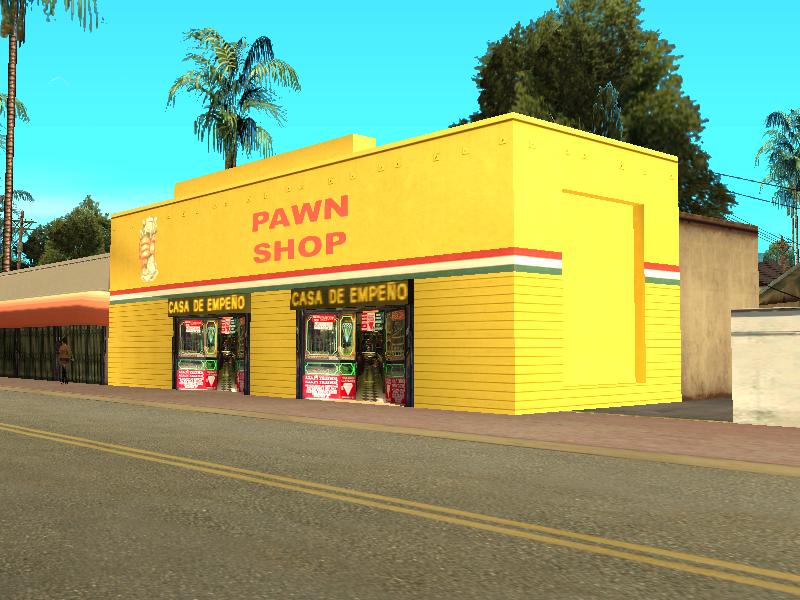There is a pawnshop in Danbury, Connecticut, that I frequent. Like most pawnshops, it is at once depressing and intriguing. I often check out pawnshops out of a foolhardy belief that I will find treasure. I used to scour flea markets with that same optimism, certain I would find a genuine Tiffany lamp amongst the macramé owls and tube socks. The lamp would be five dollars because the seller had no idea what it was really worth.
Of course eBay, Storage Wars, and Antique Roadshow have quashed my dreams. Now everyone knows the exact market value of what they own; you can spend a lifetime going to consignment stores, estate sales, and pawnshops and never find anything that anyone would consider a “treasure”—unless, of course, you have a strange unshared addiction to slightly beaten up Barbie Dreamhouses.
If I could grade pawnshops on a scale of one to ten, with ten being the most luxurious pawnshop in Beverly Hills where celebrities pawn their Cartier watches and Oscar statuettes, then the pawnshop I am standing in right now is a three. This is the rating I like the best: I can’t afford a Cartier watch and no one would believe I had won that Oscar.
What makes a three a three is that there is a sense of desperation that hangs over everything. No one pawns anything of value unless they are desperate for cash. No one fails to bail out their pawned item unless they have spent all their cash, moved away, or died. So a three is a showcase of dreary possessions that were surrendered in a moment of despair.
This particular pawnshop has all the stuff I am used to: crappy jewelry, saxophones, out-of-date electronics, and cheap folding knives. The diamond rings are cloudy like an eye with cataracts; the musical instruments are all missing a fret or a key; and the BlackBerries, VHS players, and cassette-tape recorders are piled up in digital purgatory.
Although I am sure the owner vacuums the place often, the items all seem dusty. In my mind’s eye there are also theatrical cobwebs here, like in an attic where the monster hides.
The saddest thing at a pawnshop is the taxidermy. Most pawnshops have some. Here, in Danbury, there is a stuffed black-bear cub that has been mounted on a large tree branch. Of course he will not grow up. He will never do bear things, and no one but the pawnshop seems to think he is of any value. His price tag is low, but still no one wants him.
Below the bear cub is a case of guns, handguns to be precise. Danbury, Connecticut, is not a town filled with woodsy sportsmen, so this pawnshop does not have the ubiquitous riffles with mounted scopes. The guns for sale are not the name brands Glock, Smith & Wesson, or Colt. They are all used guns, unattractive guns made by lesser-known manufacturers. You can just walk in and buy a gun, although you need a state permit to own one. If you can produce a permit, the transaction takes thirty minutes.
The men who work at this pawnshop look intimidating. Walking in is like walking into a police station: you will not get an effusive greeting. You will have already seen the sign out front: at night there are attack dogs let loose inside the store. The men behind the counter both wear holstered pistols on their belts. Obviously, a pawn hop would be a great place to rob, but my guess is anyone who tries to rob one ends up as dead as the bear cub.
Once the clerk sizes me up, I am treated well. Surpassingly well. Maybe weekends are busier, but in the afternoon, on a weekday, I am the only one here.
The clerk sees me fiddling with my ear. He sees me take out my hearing aid, shake it and put it in. He is a gigantic and intimidating looking man with a shaved head and a long black beard.
“My grandmother has the same ones,” he tells me. “They suck up batteries like crazy.”
He insists on taking a look at both of mine. With some trepidation I pull the delicate wired things out of my ears and put them in his huge hand.
He walks over to a counter and takes out a pack of four tiny batteries. With surgical skill, he removes the old batteries and puts in new ones. He grabs a round piece of cotton used for cleaning guns and swabs the hearing aids. “Try this,” he says and hands them back to me. I can now hear like crazy. I no longer have to say, “What?” constantly and annoyingly, like I am used to doing.
“Wow,” I say. “Thanks so much. What do I owe you?”
He waves me away. “On the house,” he says.
I find myself tearing up. I leave without buying anything. But, I think as I walk out, perhaps I just found the last pawnshop treasure.
Jane Stern is the author of more than forty books, including, most recently, Confessions of a Tarot Reader. With Michael Stern, she coauthored the popular Roadfood guidebook series. The Sterns recently donated forty years of archival materials to the Smithsonian museum, documenting the atmosphere, stories, and history of various restaurants, diners, and regional food events.
from The Paris Review https://ift.tt/2Kp6DYh

Comments
Post a Comment